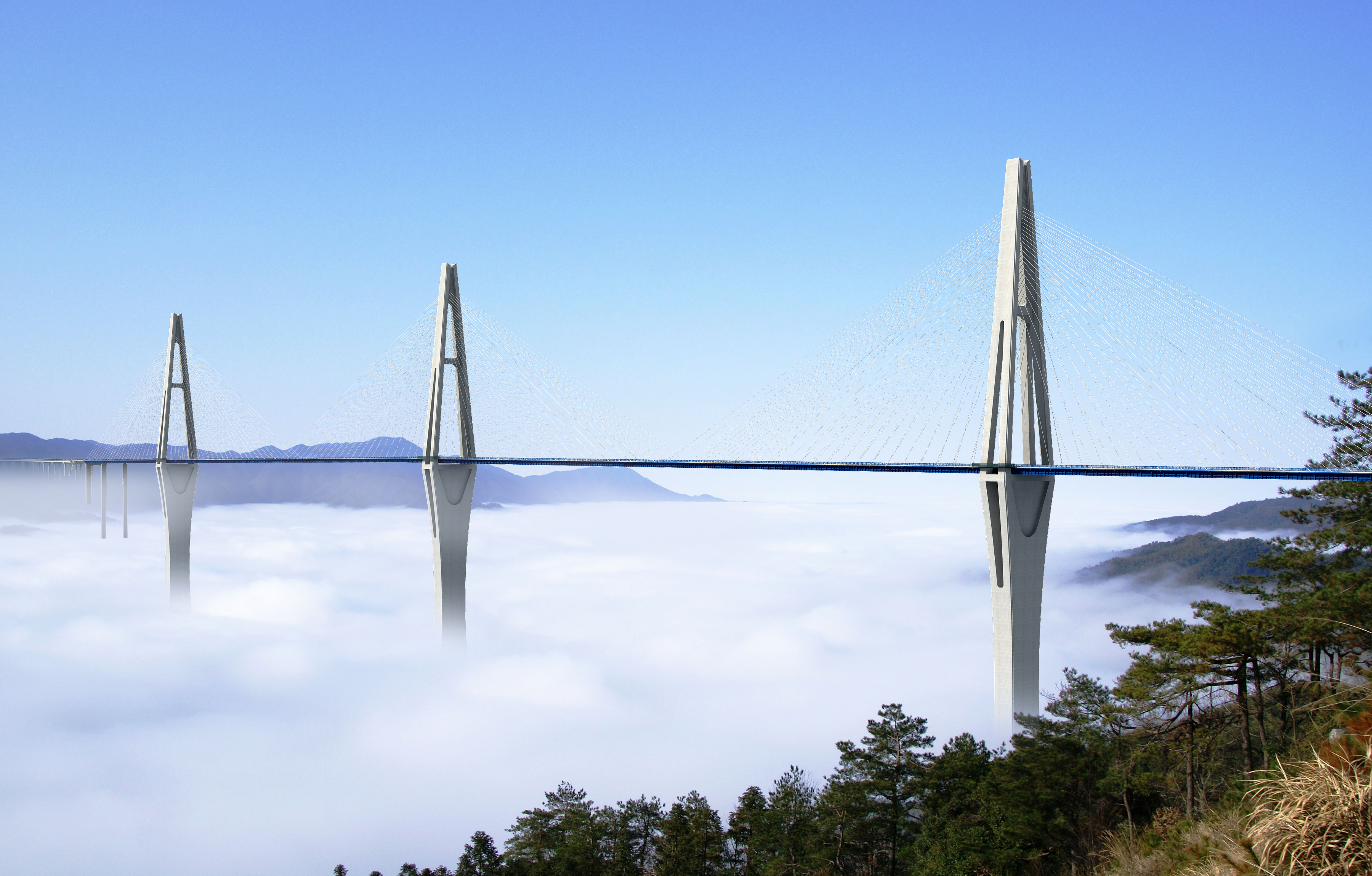Guizhou’s journey to a “museum of bridges”
GUIYANG, China
A news report by Huanqiu.com:
“The ‘Award for Infrastructure’ goes to Guizhou Pingtang Bridge project,” said the host at the award ceremony for the Outstanding Structure Award 2022 held by the International Association for Bridge and Structural Engineering (IABSE). At this moment, Yang Jian, Chief Engineer of Guizhou Transportation Planning Survey & Design Academy Co., Ltd., could not resist his excitement and cheered on the stage.
As a matter of fact, it is not the first time for this Guizhou bridge to win prestigious international award. Instead, it has won a “grand slam” of global bridge awards, including the Gustav Lindenthal Medal known as the “Nobel Prize” in engineering. As Guizhou’s bridges often won awards at international stages, IBC judges even exclaimed during evaluation, “Here comes a Guizhou bridge again, ready to take away the award the moment it showed up.”
Surprisingly, this regular top award winner used to lag behind other countries in bridge building. Difficulty in transportation has long been the bottleneck restricting the development of Guizhou. As the geographic hub of southwest China, it has not given full play to its potential due to its mountainous landscape and insufficient traffic facilities, leaving the local people in struggle. Several decades ago, Guizhou started to learn the construction of bridges and made efforts to gain experience from the advanced bridge projects of foreign countries such as Japan and Germany. However, due to its special karst landform and over 90% of the land’s surface covered by mountains and hills, there weren’t much it could learn from these predecessors.
“Since my earliest memory, my father has always been a rare guest to our home. My mom said that he was helping people build bridges and roads in places with poor transportation conditions. I developed an inexplicable love for bridges when I was little and I knew more about bridge building than the ones of my age. The affection for bridges took root in my heart and I chose the major of bridge engineering, building my dreams on the bridges, ” said Liu Hao, an engineer of Huajiang Bridge from Guizhou Bridge Construction Group.
Now, Guizhou has built nearly 30,000 bridges including those under construction, with over 2,000 expressway bridges still ongoing. There are suspension bridges, cable-stayed bridges, arch bridges and beam bridges in Guizhou, covering nearly all bridge types of the world. Reputed as the “museum of bridges”, Guizhou is home to five of the global top ten super bridges across mountains and valleys.
In the meantime, the concept of environmental protection has been included in the design and technique of bridge construction, which is another important factor for Guizhou being recognized by the international community. Take the transformation of Huayudong Bridge as an example, the team of Yang Jian proposed the solution of “dismantling after construction”, which not only avoided the environmental pollution and ecological damage caused from explosion, but also realized recycling of the old bridge. Thus, the bridge has become Guizhou’s first “basket-shaped” road bridge.
Moreover, Guizhou has now been introducing its technologies and designs of bridge to its domestic and foreign peers. For instance, Guizhou has completed the project spanning the Yellow River in Henan province and is expected to construct major projects in Mongolia and Georgia.
As Yang Jian put it, “Every time I see our bridges, I feel delighted like seeing my own child.” Now, Guizhou bridge is becoming a model in the field of bridge building, providing a solid support for Guizhou’s role as an indispensable transportation hub in southwest region. It also helps Guizhou to go global along the Belt and Road Initiative, promoting the concept of environmental protection in the new era and the idea of “building the road is the first step to become prosperous”.
SOURCE Huanqiu.com